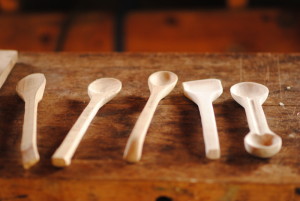“Who wants to be supper helper?” I call out, beckoning one of my three teenage kids from behind their closed bedroom doors. I am sitting in my wheelchair and aiming my voice down an empty hallway. It’s time for them to choose between setting the table and preparing supper, or cleaning up afterwards.
I admit the phrase “supper helper” is now a misnomer. I coined it years ago, when the kids were young. Back then, I cooked our evening meal and it was their job to set the table. Eventually though, as I’d started to prepare supper, I’d realize I was too tired to finish. I would chop the onions, sauté with garlic and halfway through cooking, call in one of my kids as supper helper. Soon, they were also putting on rice to boil and creating salad. And when I could no longer handle cutting a round onion with a sharp knife, being supper helper meant learning to cook.
Tonight we’re having the turkey soup my daughter made yesterday. She sets out four bowls — one for herself, the second for her brother, another for her sister, and one for me.
“Let’s put some vegetables on the table, too,” I call out.
At that moment, I’m transported to the dinner tables of my childhood. For the first eight years of my life, my grandmother prepared supper, allowing my mother to work outside the home. My father and grandfather seated themselves at the table just before my mother served the evening meal. We began by bowing our heads as we made the sign of the cross and shared a short prayer. What followed was praise for my grandmother’s cooking — mixed with giggles between siblings. Supper ended with a nod to the authority of my parents, who dismissed us from the table. Afterwards, the four children cleared off and washed the dishes, and the dog ate the leftovers. Those childhood suppers were structured events and there were expectations: the rest of the world was put aside for the duration of the meal and children had good manners.
Authority is not a hallmark of my parenting, yet I still find myself wanting to re-create those meals of my past. Tonight, as I say, “Let’s put vegetables on the table,” I am reminded of a priest standing behind an alter, raising the Communion Host for the Blessing: “Let us pray.” Let us put vegetables on the table. Supper can be a ritual, one which I still enjoy. At this point in my journey with multiple sclerosis, however, I have to remind myself that my physical inability to cook and serve food does not take away from the mental capacity needed to ensure everything comes together.
“Yeah, well, what do you want?”
My daughter stands at the fridge, the door open for an annoyingly long time, hand on hip, face cocked to the side. Vegetables suddenly sound superfluous and she sounds rude. But I’m not fooled: she’s super smart, better at math than I am, and with a competitive streak, she manages to be one of the top students in her class. For now I’ll ignore my mother’s “shoulds” and will not be bothered by the tone of my daughter’s voice.
Besides, the soup she made last night was delicious and I enjoyed watching her cook. She moved around the kitchen efficiently, chopping an onion, sautéing the garlic. She added potatoes for their starch and carrots because they are sweet. She pulled the meat off the turkey carcass in a way that would make her great-grandmother proud.
“I want,” I respond, “to serve you a salad.”
I point out that we have cherry tomatoes and the washed lettuce is stored in Tupperware. (Sometimes I can do such things myself; other times I make sure the vegetables are washed, chopped, and stored by the students I hire for extra help.) But I still have to get my daughter to put the salad on the table and tonight she’s a teenager who just doesn’t want to. I’m a tired mother who is grateful for anything done, but it has become too difficult for me to prepare a bowl of soup and salad and then to eat it. Asking my kids to help with chores is okay. Asking them to take care of me doesn’t feel okay at all. They’re too young to be concerned with my welfare. I want to be concerned with theirs.
How can I look after them? I can be creative. I can adapt. I can call in help. I can teach my kids the skills they will use later in life: the importance of family meals, how to make turkey soup from scratch. But little by little, this chronic illness is taking away my physical abilities. It is a sadness that seems to hold our family quietly.
At the supper table, my son serves me the soup, while his sister chastises him for spilling it on the table. I cannot really know what sadness or frustration may have touched these mysterious, beautiful teenagers today. So I will ask if they want to hear the funny story I heard on the radio and they will respond, “Sure, just don’t ruin the story by laughing halfway through it.” I will protest because it is a good story. Listening for my grandmother’s voice reminding me to be thankful, I can share the company of these kids over our meal.



Pingback: Just Jen by Jen Powley -